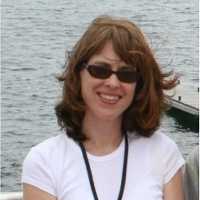Assistant Professor, University of Mississippi Medical Center ; Former Postdoc, Department of Cell Biology; 2004-2012

Interview By Joshua Chandler, PhD
Postdoctoral Fellow, Dept. of Medicine
What led you to an academic career?
The first part of my academic journey was a bit convoluted. I did some work in Chlamydomonas models as a graduate student, but decided I wanted to do something else. I didn’t publish a lot during that time but I figured out that I liked research. Ultimately, my training in cytoskeletal cell biology led me to a postdoc position with Dr. Winfield Sale at Emory, which is where I really became prepared for my current position.
How did your training at Emory make you a competitive candidate for professorship?
I had set out clear goals for what to get out of the postdoctoral fellowship, including setting myself up for a professorship. I also had a really wonderful mentor who gave me phenomenal training, and we had a great working relationship. He was also situated in a highly collegial department that fostered trainee growth. I was able to show a productive publication record from my postdoc, and I made connections in a strong academic environment with good sponsors. However, I had to play catch-up from graduate school when I didn’t publish much, so I am grateful that Dr. Sale allowed me to deeply focus on a small number of projects and rapidly publish multiple papers. In addition to new research I finished up existing projects, wrote reviews and avoided anything else as a distraction. My mentor being established meant he could be selfless about authorship, focusing more on what would look best for my own career.
What were the most challenging things during your fellowship?
At first I didn’t like the prospect of teaching at all but Dr. Sale repeatedly told me to get some teaching experience, gently insisting on it now and then. Now I’m glad he did, because there are many challenging aspects to teaching. Test writing can be particularly hard, when you think you’ve written a great question and it goes over everyone’s heads. A more pressing challenge came from getting funding to transition, which was overall quite low by the time I was ready (2009). K grants were new and I was past the eligibility requirement in my training period for a K99/R00, so it was hard to find a transitional funding mechanism.
What do you enjoy about being a professor?
I really like the process of discovery in science, as well as my independence in research. Having my own lab means the freedom to pursue my interests. Because of my training I now do promising research in ciliary mechanisms of alcoholic lung disease.
What advice do you have for current postdocs to make best use of their time?
You have to be honest with yourself about what you really want, especially if you’re thinking of an academic career. Things are at a crossroads in academia now. Focus on the evolving reality of what success is in academia by listening to multiple people and judging for yourself. The funding level from over a decade ago may never fully return. Regardless you will need very strong grant writing training to be competitive. People who get funded get interviewed, and this is not likely to change. That said, the K grant awardees don’t show any more competitive funding rates at the R stage from K grant awardees later on, so it is critical to keep working on improving your grant writing skills as you go along.
This interview was published in February 2016.

